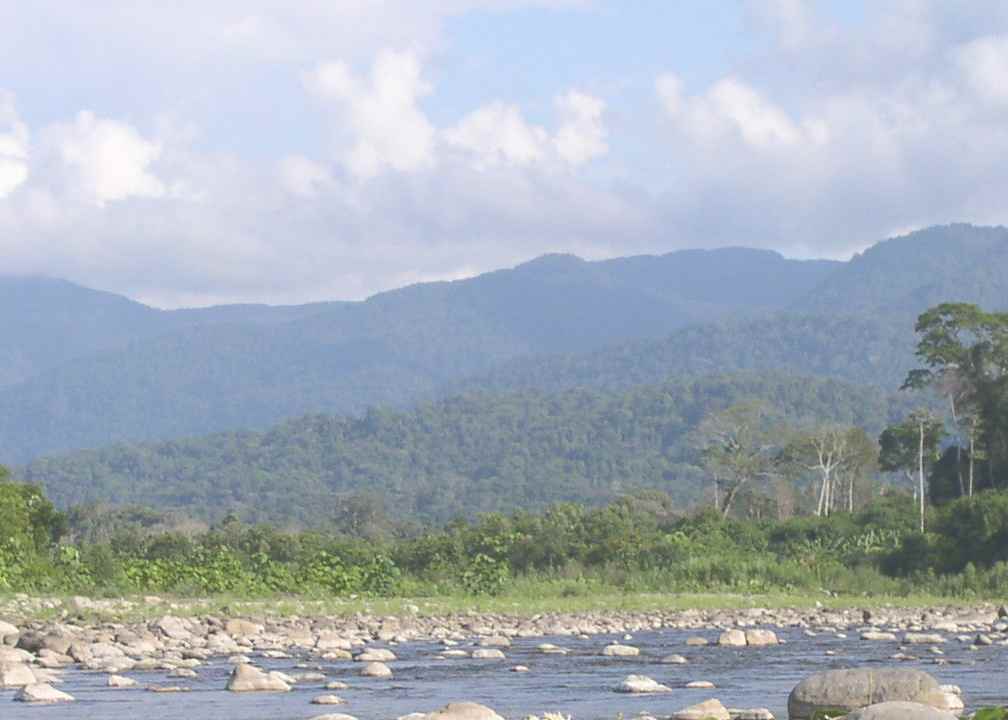 Cabeceras Aid Project
Cabeceras Aid Project Cabeceras Aid Project
Cabeceras Aid ProjectClick here to download this Update as a printable PDF (0.6MB) 
Dear Friends of Cabeceras Aid Project,
It is a pleasure to write to you once again to update you on Cabeceras' current activities. But first and foremost, I would like to say thank you for your ongoing support of our little organization over the years. We have always been a small-scale organization, and we always will be; Cabeceras boils down to a small team of volunteers with modest but clear goals and a small, carefully-spent budget. As a result, every one of our supporters has been an important part of each of our projects, and it gives me joy to thank you one more time for your support.
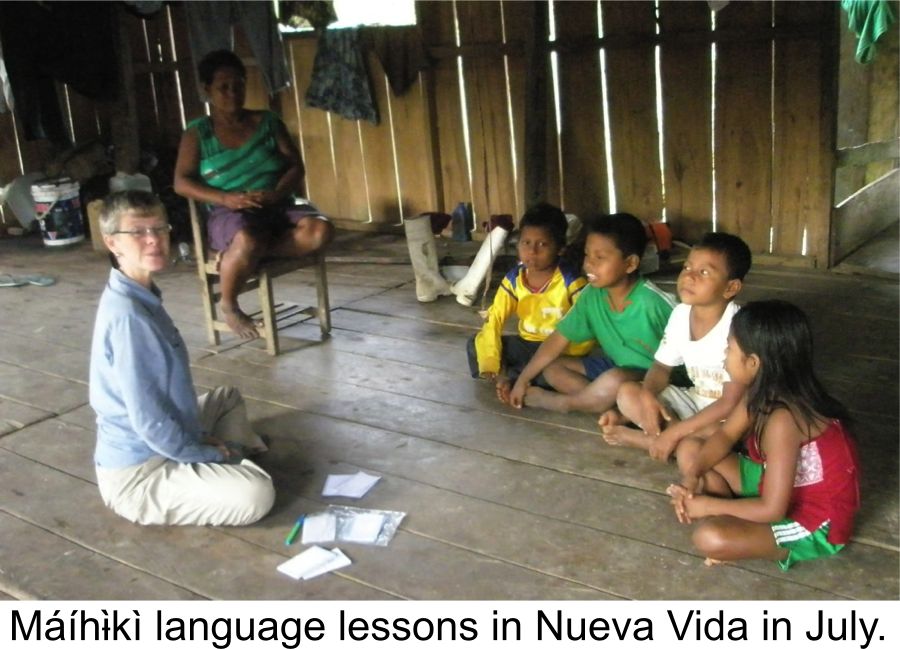 Since 1996, Cabeceras' fieldworkers have worked with, or on behalf of, Nanti, Iquito, Matsigenka, Máíhùnà, Omagua, Muniche, Mashco Piro, Katsakáti, A'ewa, and Sápara people and/or communities, through our humanitarian aid and research projects. We have taken on various types of field projects over the years, ranging from digging latrines and donating medical supplies to writing dictionaries and training community linguists. All of these activities have been rooted in Cabeceras' core mission to support activities and individuals that show promise for improving the social and physical health, fostering the cultural and linguistic survival, and generally nurturing the well-being and dignity, of small, under-served indigenous communities in Peruvian Amazonia.
Since 1996, Cabeceras' fieldworkers have worked with, or on behalf of, Nanti, Iquito, Matsigenka, Máíhùnà, Omagua, Muniche, Mashco Piro, Katsakáti, A'ewa, and Sápara people and/or communities, through our humanitarian aid and research projects. We have taken on various types of field projects over the years, ranging from digging latrines and donating medical supplies to writing dictionaries and training community linguists. All of these activities have been rooted in Cabeceras' core mission to support activities and individuals that show promise for improving the social and physical health, fostering the cultural and linguistic survival, and generally nurturing the well-being and dignity, of small, under-served indigenous communities in Peruvian Amazonia.
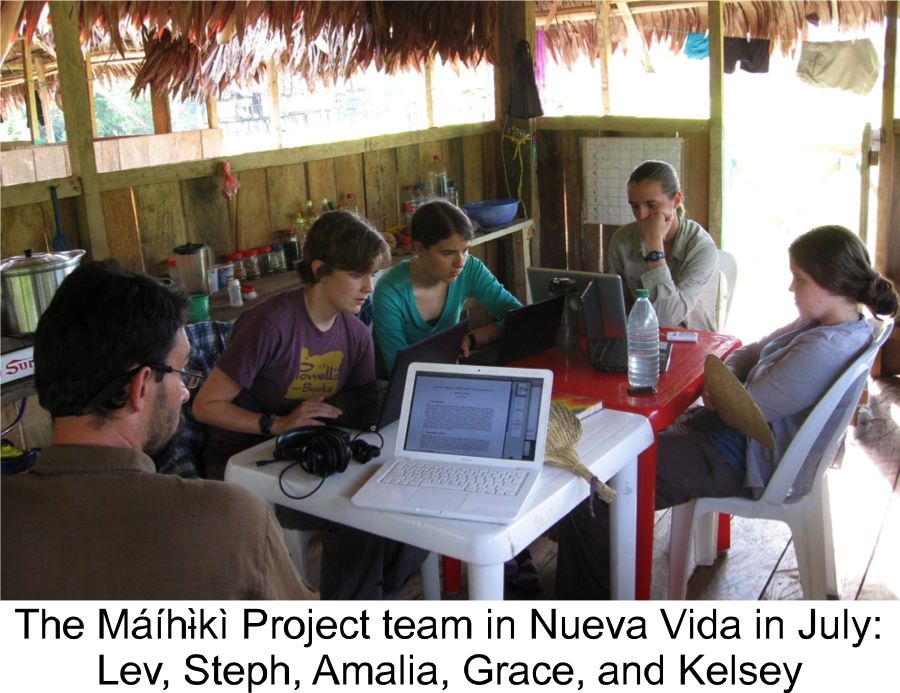 Over the course of this past year, Cabeceras has continued to participate in various language documentation and revalorization efforts in Peruvian Amazonia, by providing logistical, infrastructural and political support to project teams that are primarily funded by research grants awarded to Lev Michael. Currently, our largest on-going projects are the Máíh
Over the course of this past year, Cabeceras has continued to participate in various language documentation and revalorization efforts in Peruvian Amazonia, by providing logistical, infrastructural and political support to project teams that are primarily funded by research grants awarded to Lev Michael. Currently, our largest on-going projects are the Máíhìkì Project, based in Nueva Vida (Loreto); and the Matsigenka Project, based in Quillabamba (Cusco). In addition, this year we continued our advocacy work on behalf of the Nanti communities on the Camisea River in southeastern Peru.
Not needing to fund the above-mentioned projects has meant that in 2012, and again 2013, our major organizational focus can be our small scholarship program — the Nathaniel Gerhart Memorial Scholarship Fund — because right now this is the greatest opportunity we have to invest in a better future for a large number of indigenous communities in Amazonia. This fund supports bilingual indigenous students in their post-secondary professional studies who have a vision (and a track record) of serving their own and/or other Amazonian indigenous communities through their professional activities. Our two shining stars this year have been Alex Rodríguez Roque, a Bora man studying civil law in Iquitos; and Maribel Kaibi Omenki, a Matsigenka woman studying Nursing in Cusco. I'd like tell you a bit about them, and then pass on their own words of thanks to you below.
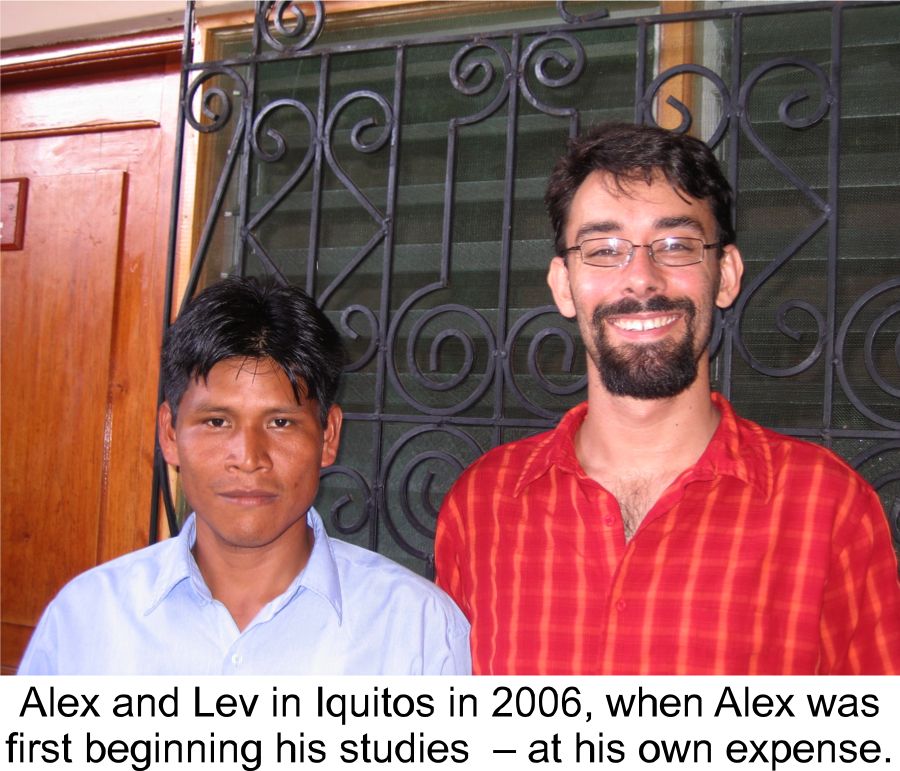 This year, Alex Rodríguez Roque, from the Bora community of Pucaurquillo in the Department of Loreto, finished his coursework in Civil Law and Political Science at ULADECH-Iquitos, and he is now in the process of fulfilling the final requirements to obtain his Bachelor's degree. He chose the program at ULADECH-Iquitos in part because it includes the option to obtain his professional title as Abogado (lawyer) by writing a thesis, which will be the focus of studies next year. Throughout his studies, Alex has been working as a school teacher to support himself and his family; his scholarship from Cabeceras only covers his school-related costs. His concrete goal in becoming a lawyer is to be able to work defending and improving the civil rights of indigenous individuals and communities in Loreto. His unflagging dedication, patience, and humility impresses me time and again. His letter of thanks to you (in three languages) is here.
This year, Alex Rodríguez Roque, from the Bora community of Pucaurquillo in the Department of Loreto, finished his coursework in Civil Law and Political Science at ULADECH-Iquitos, and he is now in the process of fulfilling the final requirements to obtain his Bachelor's degree. He chose the program at ULADECH-Iquitos in part because it includes the option to obtain his professional title as Abogado (lawyer) by writing a thesis, which will be the focus of studies next year. Throughout his studies, Alex has been working as a school teacher to support himself and his family; his scholarship from Cabeceras only covers his school-related costs. His concrete goal in becoming a lawyer is to be able to work defending and improving the civil rights of indigenous individuals and communities in Loreto. His unflagging dedication, patience, and humility impresses me time and again. His letter of thanks to you (in three languages) is here.
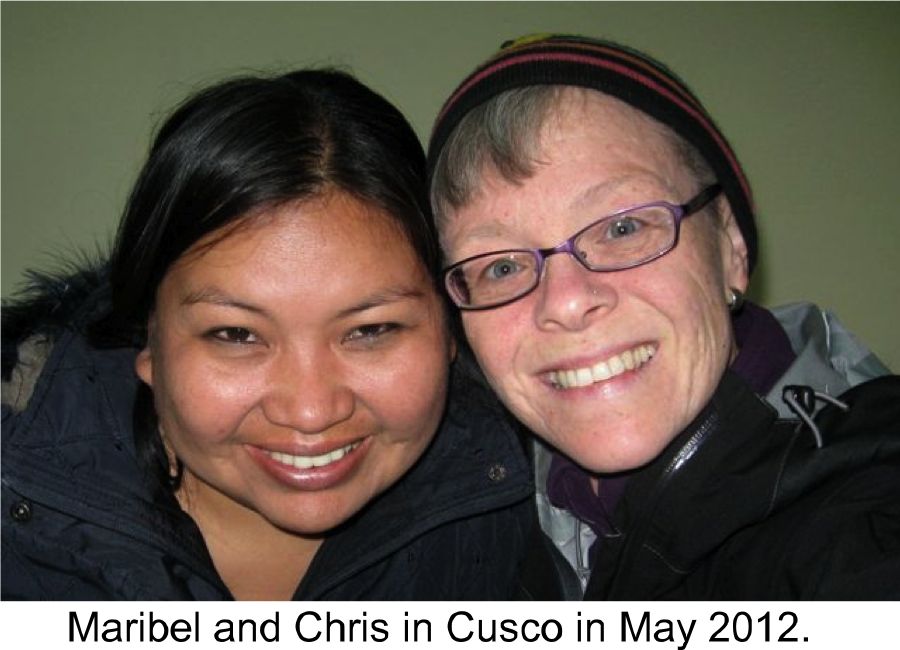 In March, Maribel Kaibi Omenki, from the Matsigenka community of Koribeni in the Department of Cusco, began her coursework in the Nursing program at Universidad Andina in the city of Cusco. Maribel already has the professional title, and several years of work experience, as a 'Nurse Technician', so she is enjoying her Nursing courses as they build on her existing knowledge of healthcare. Because Maribel has already worked providing healthcare in geographically remote and under-served communities, she is well aware of how valuable her additional training will be when she returns to work as a nurse in Matsigenka communities. Like Alex, Maribel is hard-working, patient and humble, and it is an honor to accompany her on this journey through higher education. Her letter of thanks to you (also in three languages) is here.
In March, Maribel Kaibi Omenki, from the Matsigenka community of Koribeni in the Department of Cusco, began her coursework in the Nursing program at Universidad Andina in the city of Cusco. Maribel already has the professional title, and several years of work experience, as a 'Nurse Technician', so she is enjoying her Nursing courses as they build on her existing knowledge of healthcare. Because Maribel has already worked providing healthcare in geographically remote and under-served communities, she is well aware of how valuable her additional training will be when she returns to work as a nurse in Matsigenka communities. Like Alex, Maribel is hard-working, patient and humble, and it is an honor to accompany her on this journey through higher education. Her letter of thanks to you (also in three languages) is here.
Although the monetary costs of higher education in Peru are in general much lower than in the United States, the complex social, economic, and logistical factors that indigenous students face are insurmountable for most individuals. Therefore, in addition to providing financial support, Cabeceras is providing personal mentorship to our awardees, in order that they have social and moral support when they face the different kinds of challenges that arise as they continue their formal education. This means, among other things, that I maintain regular contact with our awardees through email, chat, and Skype; I provide practical guidance and skill-building regarding money and time management; I offer suggestions regarding the intricacies of university life and urban living; and I can generally be counted on to provide encouragement and a fresh point-of-view as often as necessary. Just as much as we expect a good-faith commitment from our awardees, we have made a multi-faceted commitment to them, to help each one find his or her own path to success.
In light of the sizeable multi-year commitment that the scholarship program requires of Cabeceras, I would like to express special thanks to the Nathaniel Gerhart Memorial Fund in New York, and to Margo Minogue-Heyl and Bob Heyl in Houston, for their substantial support of the scholarship fund; and to Margo Minogue-Heyl for her indispensible administrative assistance!
Can you make a donation to our scholarship fund today? As you may have noticed, I write to you once a year, to let you know what our organization is doing, and to ask you to support us financially. I hope that this letter will renew your enthusiasm for our work, and inspire you to make a contribution to our scholarship fund. As always, Cabeceras has no paid staff and almost no overhead costs, so 100% of your donation will go to our scholarship students. Cabeceras is a 501(c)(3) organization, so your donation is tax-deductible. Our Tax ID number is: 74-2799387.
Thank you so much for your ongoing support!
![]()
Christine Beier
Fieldworker, Secretary and Treasurer
Just click the ''Donate Now'' button below to make a secure donation though Network for Good:

Or you can send a check to:
Cabeceras Aid Project
5859 Braesheather Drive
Houston TX, 77096-3933
Gracias! (Spanish)
Kameti! (Nanti)
Kametitake! (Matsigenka)
Jaári tíi! (Iquito)
Dèìrá jà! (Máíhìkì)
Yuse! (Muniche)
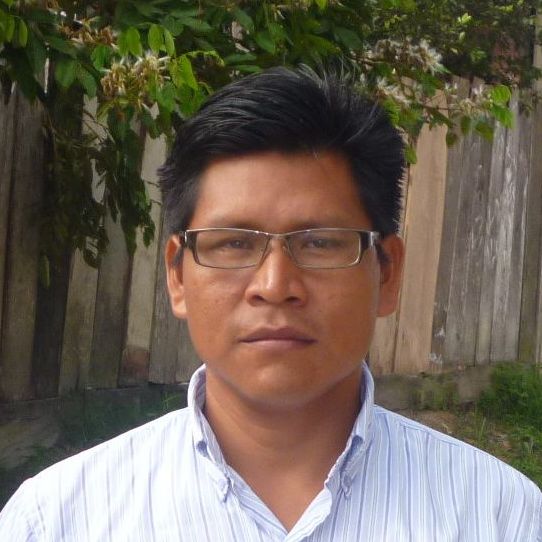 From: Wáájco Áátyum+mujee, Alex Rodríguez Roque
From: Wáájco Áátyum+mujee, Alex Rodríguez Roque
To: Cabeceras Aid Project's Supporters
Téédúútso ONG Cabecerallííhe téétuure p+apomunaallííhe:
Íilletúú sanantoniotúú oiimilleíí otéétúújtsone amúhakee tañáábemukee, amuháá p+aabotúú okéé amuháá me-áákunellíí. Tééture oiimilleíí onééne amuhááke, amuháá p+aabotúú ds++dsiríí, iilletúú oiimilleíí otéétúújtsone tsáápiitsake amuháá p+aabotúú ds++dsiríí, amuháá p+haboríí on++keváá tawaajakuu, owaajakukíí ++náá páátyenéé tañáábemumáá indíígemamumáá, tahiñyuj++munamáá, ohityekúú op+abokíí tíítyekee, ts++tééj++ múúhakee ihallíítyukii. On++kevakíí tatéétúújtsomáá, otéétúújtsohíí mityanéé amuhááke, óóke ++dáátsoobeke ds++dsivatuubekee amuháá mep+habonellííe.
Agradecimiento para la ONG Cabeceras y para los Donantes:
Desde San Antonio yo quiero agradecer a Ustedes, mis hermanos, por su ayuda que a mí me están dando. También yo quiero decir a Ustedes, por su ayuda económica, desde acá quiero agradecer a cada uno por su apoyo. Por su ayuda voy a concluir mis estudios, para conocer qué pasa con mis hermanos indígenas de mi tierra; yo también para ayudar a ellos, para que otros no nos engañen a nosotros. Para terminar con mi agradecimiento, agradezco mucho a Ustedes, porque Ustedes me están apoyando a una persona humilde económicamente.
(Translation of Alex's Spanish to English by Christine Beier)
Gratitude to Cabeceras and its donors:
From [the community of] San Antonio, I want to thank you, my brothers and sisters, for the support that you are giving to me. I also want to speak to you of your economic support; from here [far away] I want to thank each of you for your economic support. Through your support I will finish my studies, in order to know and understand what is happening to my indigenous brothers and sisters here [in Peru]; and also so that I can help them, so that we are not deceived and misled. To conclude my thanks, I thank you very much because you are helping in me a person of humble economic means.
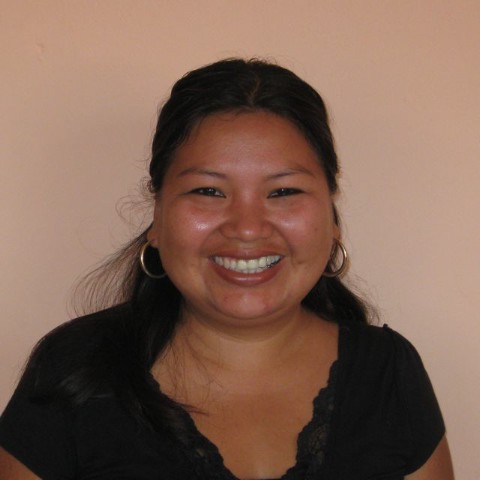 From: Maribel Kaibi Omenki
From: Maribel Kaibi Omenki
To: Cabeceras Aid Project's Supporters
Novairo onti Maribel Kaibi Omenki. Nanti Matsigenka, notimi Koribeniku. Otsititakara noneakerora ONG Cabeceras, otinkamitakarora Dra. Christine Beier, noshinetaka tovaiti, arisano amutakena okañotakara pashinipage yamutaigakera inkoakotenpa kameti nagaveakotakerora noampitantakera. Noneaka naro agaveakotakero nontsonkatakero nikashitakarira. Gracias, ario nonkante.
Mi nombre es Maribel Kaibi Omenki, y soy Matsigenka de la comunidad nativa de Koribeni. Desde que tuve contacto con la ONG Cabeceras a través de la Dra. Christine Beier, me siento muy contenta y verdaderamente apoyada con la confianza de todas aquellas personas que, de manera anónima y importante, me ayudan día a día para salir adelante en mi carrera de enfermería. Siento que mi compromiso para poder agradecer todo este apoyo no va a terminar cuando concluya mi carrera sino cuando de igual forma ayude a mis paisanos nativos que viven muy alejados y no gozan de los servicios de salud. Por todo este apoyo yo agradezco de corazón, la oportunidad y la confianza que han depositado en mí, y tengo la certeza que no les defraudaré.
(Translation of Maribel's Spanish to English by Christine Beier)
My name is Maribel Kaibi Omenki, and I am a Matsigenka from the community of Koribeni. Since I first made contact with Cabeceras, through Christine Beier, I have felt very happy and genuinely supported by the confidence of all the people who, anonymously but importantly, help me day after day to succeed in my nursing program. I feel that my commitment to express my gratitude for all this support will not end when I finish my studies, bur rather when, in turn, I help my fellow Matsigenkas who live in remote places where there are no regular health services. For all your support I thank you from my heart, for the opportunity and for the confidence you have placed in me, and I am certain that I won't disappoint you.
 Last updated: 11 December 2012
Last updated: 11 December 2012